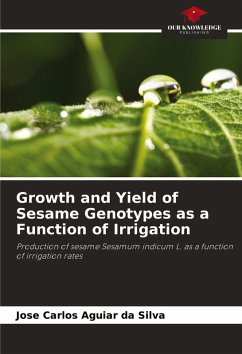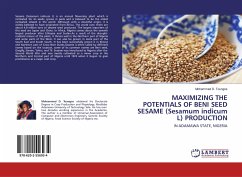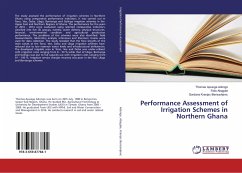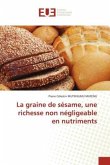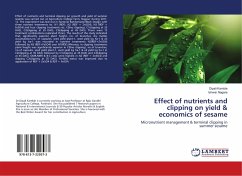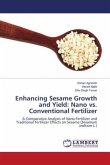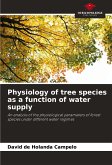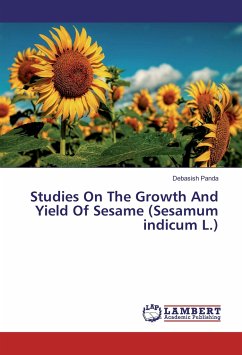Sesame (Sesamum indicum L.) is an oleaginous species belonging to the Pedaliaceae family, possibly originating in India or Ethiopia (RICCI et al., 1999). Because its seeds contain around 50% oil of excellent quality, interest in the crop has been growing, especially in the Midwest, North and Northeast regions of Brazil (BELTRÃO and VIEIRA, 2001). According to Castellanelli et al. (2007), sesame is a crop adapted to tropical and subtropical climates, with drought tolerance and ease of cultivation. It is currently grown in 71 countries, especially in Asia and Africa. World production is estimated at 3.8 million tons, obtained from 7.8 million hectares, with an average yield of 487 kg ha-1. It was in this context that the research sought to quantify and evaluate the growth and productive capacity of different sesame genotypes as a function of irrigation rates, with the aim of determining the best irrigation rate to be applied and the productive advantage that would justify its application.
Bitte wählen Sie Ihr Anliegen aus.
Rechnungen
Retourenschein anfordern
Bestellstatus
Storno

